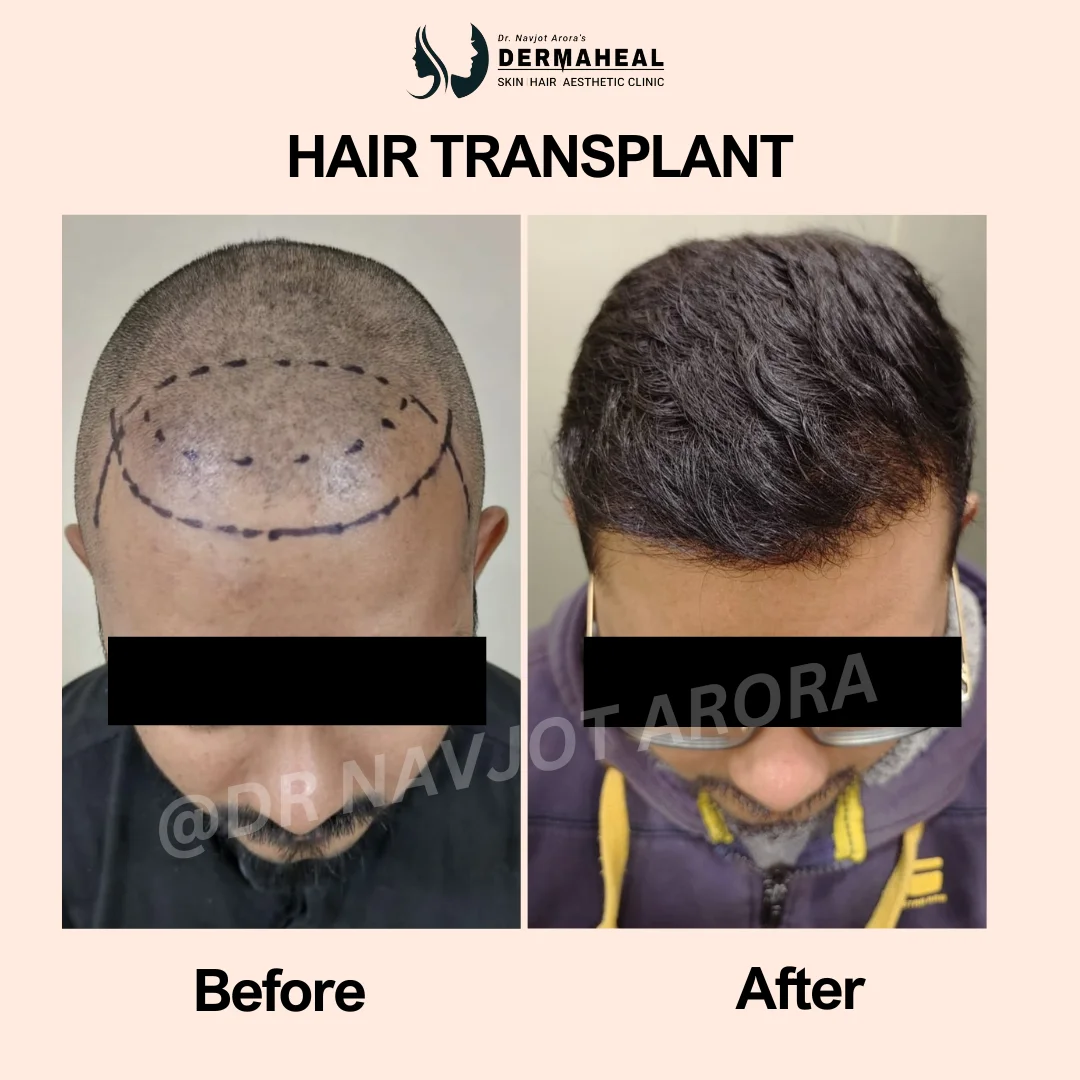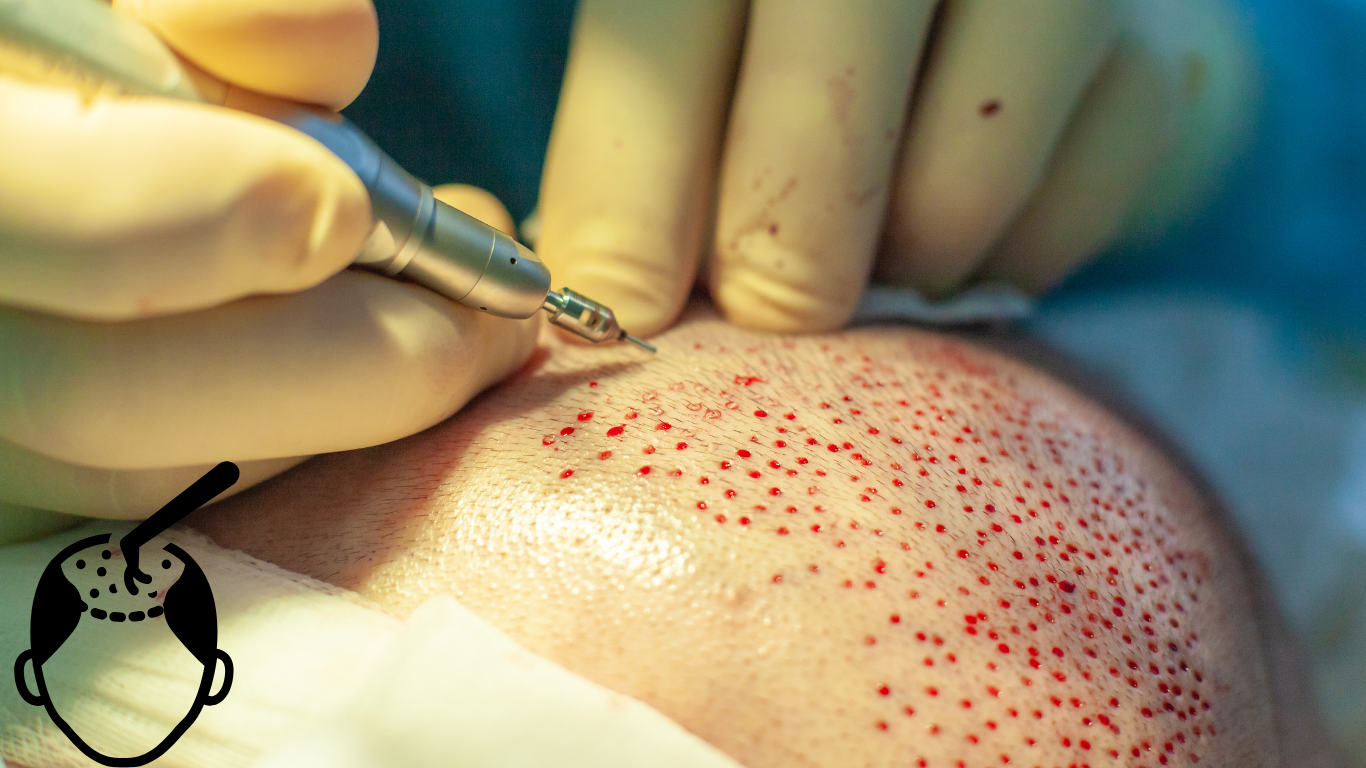
Struggling with thinning hair, receding hairlines, or bald patches? A Hair Transplant can be the most effective and permanent solution to restore your natural hair — and your confidence.
At Dermaheal Skin & Hair Clinic, we offer advanced, minimally invasive hair transplant treatments in Delhi, personalized to each patient’s hair loss pattern and goals.
What Is a Hair Transplant?
A Hair Transplant is a medical procedure where hair follicles are extracted from a donor area (usually the back of the scalp) and implanted into bald or thinning areas. These transplanted follicles continue to grow naturally for life.
There are two major types of hair transplant techniques:
- FUE (Follicular Unit Extraction): Individual hair follicles are removed and placed in thinning areas with precision. This technique leaves no linear scar and has a quick recovery.
- FUT (Follicular Unit Transplantation): A strip of skin is taken from the donor area and divided into grafts. Suitable for patients needing more coverage.
At Dermaheal, we mostly use FUE, thanks to its precision, natural results, and minimal downtime.
7 Key Benefits of Hair Transplant
1. Permanent Solution to Hair Loss
Unlike temporary options like serums or medications, a hair transplant offers a long-lasting and often lifelong solution.
2. Natural-Looking Results
Since your own hair follicles are used, the result is incredibly natural. Hair grows, sheds, and styles just like before.
3. Minimal Downtime
The FUE technique requires no stitches and minimal healing time. Most patients resume routine activities within a few days.
4. Boosts Self-Confidence
A fuller head of hair can greatly improve your self-esteem, especially if you’ve been dealing with visible thinning or baldness.
5. Low Maintenance
Once the transplanted hair grows in fully, it requires no special care — just treat it like the rest of your hair.
6. Safe and Proven
Modern hair transplant procedures are safe, scientifically backed, and widely used around the world.
7. Cost-Effective in the Long Run
While the initial cost may seem higher, a hair transplant eliminates the long-term expenses of temporary treatments or cosmetic camouflage.
How the Hair Transplant Procedure Works
Step 1: Consultation & Hairline Planning
A dermatologist analyzes your scalp, donor area, and bald zones. A new hairline is mapped according to facial structure.
Step 2: Local Anesthesia
Your scalp is numbed so the entire procedure is painless.
Step 3: Graft Extraction
Hair follicles are carefully extracted from the donor zone (usually back or sides of the head).
Step 4: Implantation
The follicles are artistically implanted into bald or thinning areas with attention to direction and density.
Step 5: Recovery & Aftercare
You can go home the same day. Post-procedure instructions are shared to help healing and growth.
Recovery and Results Timeline
- Day 1–2: Mild swelling or tightness
- Day 3–7: Scabs fall off
- 2–3 Weeks: Shedding of transplanted hair (normal)
- 3–4 Months: New growth begins
- 6–9 Months: Noticeable density improvement
- 12 Months: Final results
Is Hair Transplant Right for You?
You may be a good candidate if you:
- Have stable hair loss (male pattern baldness or thinning)
- Have sufficient donor hair on the back or sides of the head
- Are aged between 25–60
- Want a natural, permanent result
- Are in good general health
Are There Any Side Effects?
Hair transplant is safe when done by experienced professionals. Temporary side effects may include:
- Redness or swelling
- Scabbing at implant sites
- Mild itching or tightness
- Shock loss (temporary shedding)
These subside within days or weeks and can be easily managed with aftercare.
Frequently Asked Questions (FAQs)
Is a hair transplant painful?
No. Local anesthesia ensures you’re comfortable throughout the procedure.
How much downtime is needed?
You can resume most normal activities within 2–3 days.
Is it suitable for women too?
Yes, women with specific hair loss patterns may also benefit from hair transplants.
How long do results last?
Hair transplant results are typically permanent. The transplanted hair grows for life.
Can it be combined with PRP?
Absolutely. PRP therapy is often combined to boost hair growth and healing.
How many sessions are needed?
Most people need only one session. Those with larger bald areas might require two.
Book Your Hair Transplant Consultation Today
Take the first step toward a fuller head of hair. Schedule your personalized consultation with
Dermaheal Skin & Hair Clinic







